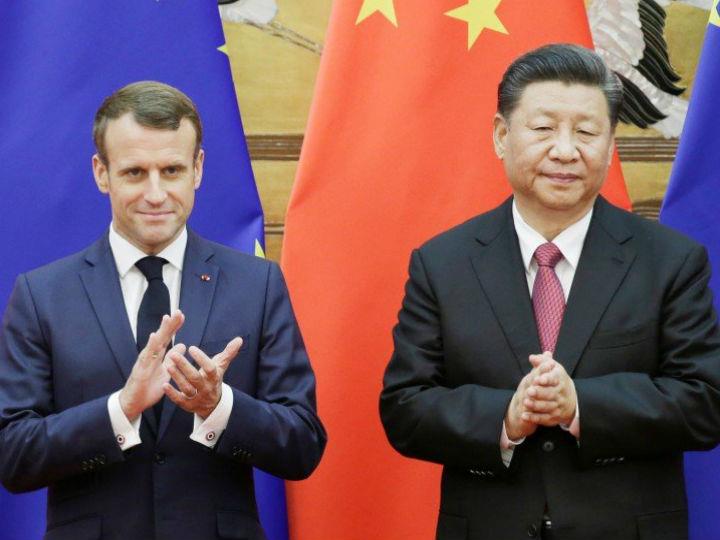by Martin Sandbu*
Two facts are fundamental for the EU’s orientation towards China.
One is that the US is now at best indifferent to the survival of the rules-based international order. Europe is largely left alone to defend the international governance under which it thrives. The other is that China is building a global economic network with itself as the centre. This can be seen in the Belt and Road Initiative, its push for technological leadership, and, less visibly, an interest in monetary dominance of which payments technology and a new digital renminbi will be part. The effect is to push countries to align with China’s economy and rules, rather than Europe’s.
Put together, these two facts mean that for the first time in the history of the European project, the EU has to go on the offensive in order to defend its interests. What this means is restoring itself as a pole of attraction for third countries and projecting its influence with them just as much as China does and as the US has done in the past.
Earlier this year Brussels named China a “systemic rival”. Here are seven things Europe must do to address this rivalry.
First, articulate a vision for the future as concrete and appealing as anything Beijing can come up with. Belt and Road is powerful not just because of the resources that may be put behind it, but because of the sheer ambition of physically bringing the Eurasian continent (and more) closer together.
The EU and its member states should agree a similarly ambitious vision of uniting the European continent and its neighbourhood, including pan-European energy grids, state-of-the-art green transport infrastructure, and a rededicated promise of a truly single market, where consumers have the same choices no matter where they live in Europe.
Second, offer more to Europe’s eastern and southeastern flank in particular. The 17 countries that have joined Beijing’s “17+1” Belt and Road platform have done so not because China has put a lot of money on the table — it has not — but because Europe is seen to offer even less. This region remains the physically least well-connected part of Europe. That has to change.
Third, create a better-defined and more attractive offer for countries not on a path to full single market membership. This could consist of an ambition for frictionless trade in goods for those countries that are able and willing to adopt the EU’s “software” for goods trade — customs, product standards and production regulations, including how they are updated over time and the relevant EU judicial procedures. In return for becoming explicit rule-takers on goods trade, the EU could offer counterparts hard and soft infrastructure, from financing construction to euro liquidity support for central banks.
An explicit standardised association model for non-members along these lines can be offered far beyond geographical Europe. The creation of the African Continental Free Trade Area offers a particularly interesting counterpart with which to explore deeper economic integration over time.
Fourth, employ sticks as well as carrots. Countries that choose not to align with the EU must expect to face the barriers with which Europe protects its values and interests. That should include carbon border adjustment taxes with those not doing their part on climate change, and restrictions on data flows with those that disrespect the data rights Europeans increasingly assert.
Fifth, while being transparent about systemic rivalry, identify clearly aligned interests where the EU and China can work together as equal partners. Climate change policy is an obvious area.
Sixth, more ambitiously, look for areas to accommodate a full role for China in shaping global governance. Neither China nor the EU want to see globalisation reverse, and they both have a legitimate interest in shaping the future global trading rules. Global monetary reform, especially in light of fast developments in payments technology, is another area where the EU should welcome a full part for China.
Seventh, circling back to the first point, the EU needs to be much more aware of the things it does well and which make it attractive to others.
In technology policy, for example, too many Europeans fret about having no equivalent to Google or Facebook, while too few pride themselves on the Linux operating system’s European origins. The former extract massive profits from surveillance-intensive advertising. The latter is a free and ubiquitous underpinning of the digital world. Which has done more for Europe’s — and the world’s — productivity?
Rather than envying America’s tech monopolists or China’s privacy-blind data hoarding, Europe must learn to see that many of its particularities, such as tougher competition and privacy rules, are not weaknesses but strengths.
A case in point: a few weeks ago, the EU and China struck an agreement to protect each other’s geographical indications of high-quality food products. Often seen elsewhere as an annoying quirk of European protectionism, it turns out GIs can prove attractive to other countries — even China. It is a very humble case of projecting soft EU influence that should serve as inspiration for greater ambition.
*economics commentator
**first published in: www.ft.com




 By: N. Peter Kramer
By: N. Peter Kramer
